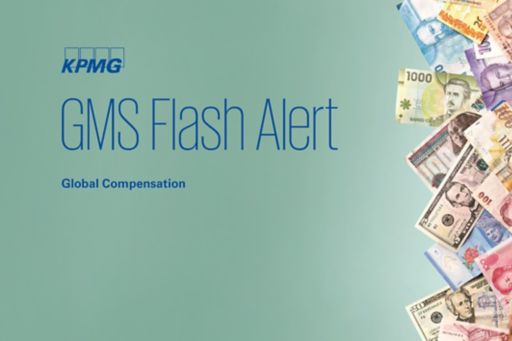Singapore – Deemed Exercise Rule and Opportunity for Tax Refund
Singapore–Deemed Exercise Rule & Opp. for Tax Refund
This GMS Flash Alert highlights the potential opportunity available for certain non-citizen employees who previously worked in Singapore to apply for a tax refund if the actual gain realised upon the exercise or vesting of shares is lower than the gain previously subjected to tax under the Singapore deemed exercise rule.

This GMS Flash Alert highlights the potential opportunity available for certain non-citizen employees who previously worked in Singapore to apply for a tax refund if the actual gain realised upon the exercise or vesting of shares is lower than the gain previously subjected to tax under the Singapore deemed exercise rule.
Below is a summary of the deemed exercise rule and the potential tax refund opportunity.
WHY THIS MATTERS
As global equity markets have dropped significantly over the past few weeks and may remain depressed, non-citizen employees who previously paid taxes in Singapore under the deemed exercise rule may qualify for a tax refund. The reassessment opportunity would benefit individual taxpayers, or their employers that funded the tax on the deemed gains under a corporate tax equalisation programme.
Background
Under Singapore tax law, certain non-citizen employees are deemed to derive taxable gain from unexercised stock options and unvested share awards when they cease employment in Singapore. This deemed exercise rule applies to any unexercised or restricted employee share options (ESOP) or any unvested or restricted shares under an employee share ownership (ESOW) plan granted while the non-citizen employee was working in Singapore.
Tax Treatment
When the deemed exercise rule applies, the non-citizen employee is deemed to have derived final gain from ESOP or shares under an ESOW plan. The deemed gains are calculated based on the Open Market Value (OMV) of the shares as at one month prior to the cessation of employment or the date of grant of the ESOP or ESOW (whichever is later), less the price payable (if any) by the employee to acquire the shares.
Tax Refund
If the amount of deemed gain computed and reported on the tax clearance return is greater than the actual gain realised by the individual upon exercise or vesting, upon application, the Comptroller of Income Tax (CIT) may reassess the individual’s tax liability based on the actual gain computed for the assessment year to which the deemed exercise relates.
To apply for a reassessment of tax liability, the individual must submit:
(a) an application to the CIT within four years from the year of assessment following the year in which the deemed exercise rule applied, and
(b) relevant documentation to support that the actual tax liability is lower than that computed under the deemed exercise rule.
Where the actual gain realised at exercise or vesting is greater than the deemed gain computed under the deemed exercise rule, no additional tax is assessed.
KPMG NOTE
With the depressed global equity markets, the actual gains realised upon exercise of the ESOP and / or vesting of the ESOW shares previously subjected to tax under the deemed exercise rule may be lower than the deemed gains. The reassessment opportunity presents taxpayers and employers a potential avenue to recover taxes previously paid.
It is recommended interested parties consult with their professional tax advisers to assess their situations and determine next steps.
The information contained in this newsletter was submitted by the KPMG International member firm in Singapore.
SUBSCRIBE
To subscribe to GMS Flash Alert, fill out the subscription form.
© 2024 KPMG Services Pte. Ltd. (Registration No: 200003956G), a Singapore incorporated company and a member firm of the KPMG global organization of independent member firms affiliated with KPMG International Limited, a private English company limited by guarantee. All rights reserved.
For more detail about the structure of the KPMG global organization please visit https://kpmg.com/governance.
GMS Flash Alert is a Global Mobility Services publication of the KPMG LLP Washington National Tax practice. The KPMG name and logo are trademarks used under license by the independent member firms of the KPMG global organization. KPMG International Limited is a private English company limited by guarantee and does not provide services to clients. No member firm has any authority to obligate or bind KPMG International or any other member firm vis-à-vis third parties, nor does KPMG International have any such authority to obligate or bind any member firm. The information contained herein is of a general nature and is not intended to address the circumstances of any particular individual or entity. Although we endeavor to provide accurate and timely information, there can be no guarantee that such information is accurate as of the date it is received or that it will continue to be accurate in the future. No one should act on such information without appropriate professional advice after a thorough examination of the particular situation.
